The AFAN project, promoted by the European Civil Protection Mechanism (ECPMU) of the European Commission, aims to enhance existing regional, national and international knowledge and capacities, to transfer to them the mission of shared mutual learning and to create the basis for an operational network based on trust and support. In this way, it aims to generate an overall improvement in European capacities and coordination in the response to wildland fires.
AFAN also provides a guide to identify the expertise and skills of analysts in order to facilitate the creation of a common framework in different organisations and to define skills, knowledge and abilities in wildland fire analysis.
The guide classifies in different levels of complexity 6 thematic areas of knowledge where the fire analyst develops their skills:
Meteorology (MET)
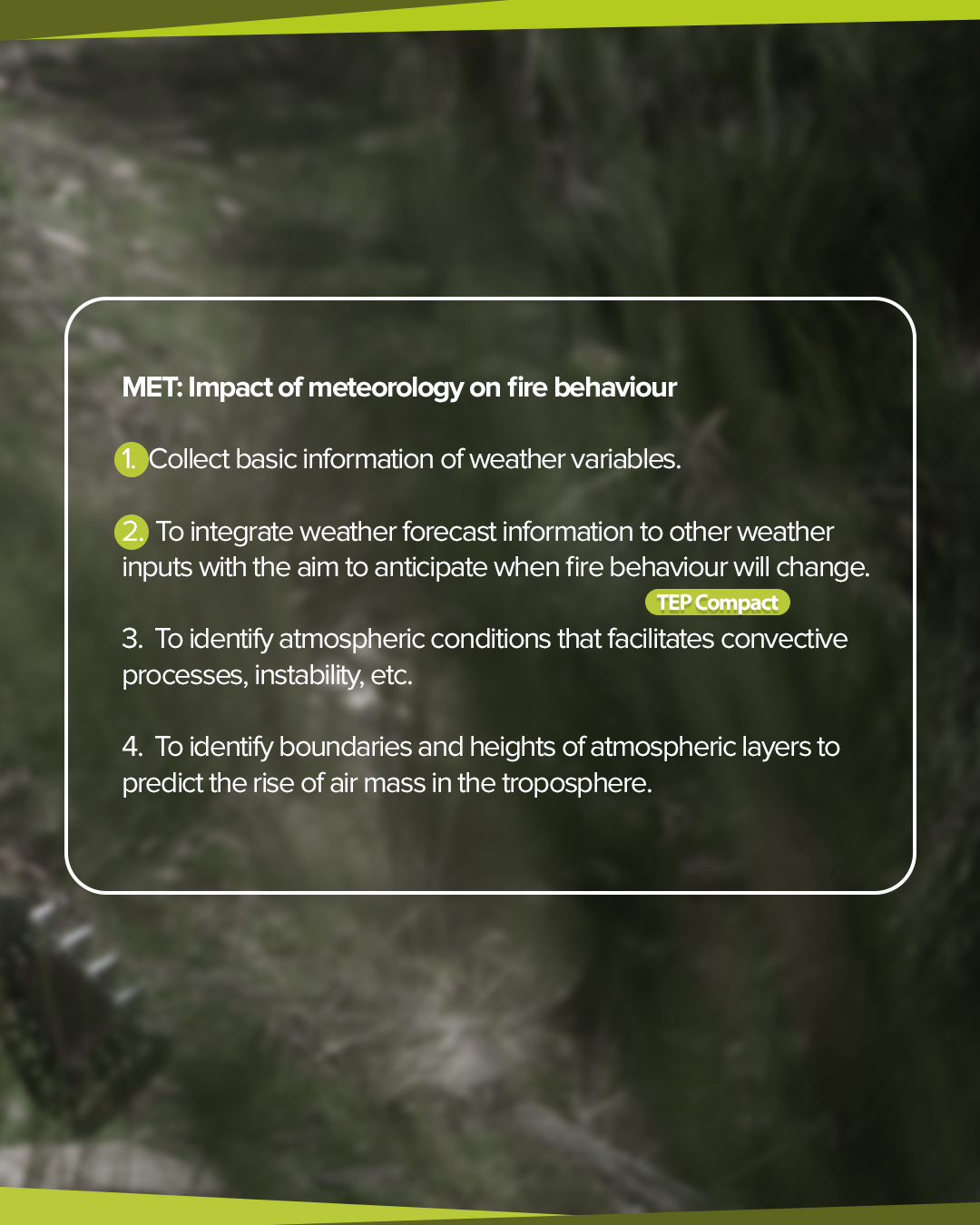
Fire Position (PER)
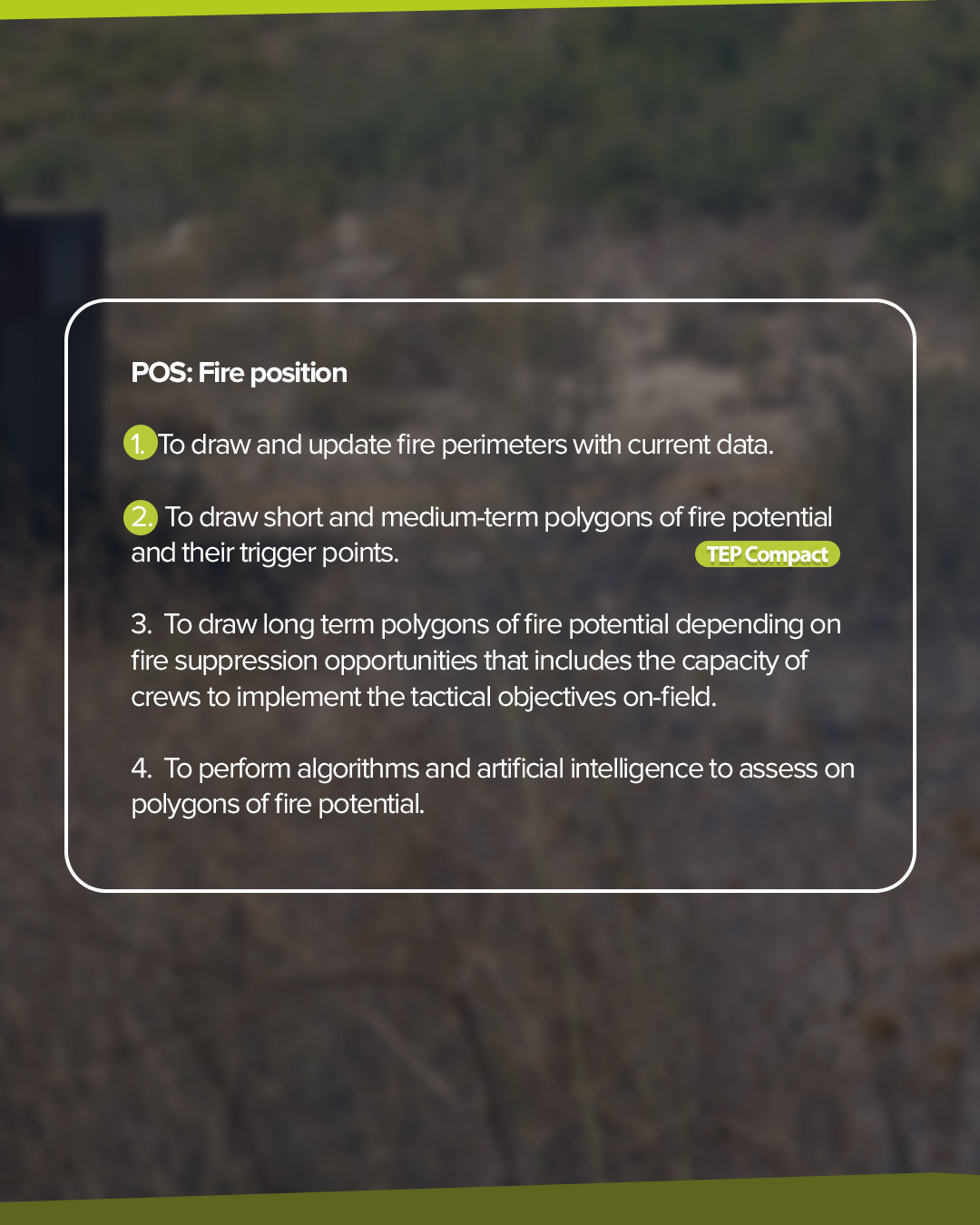
Tactical planing (TP)
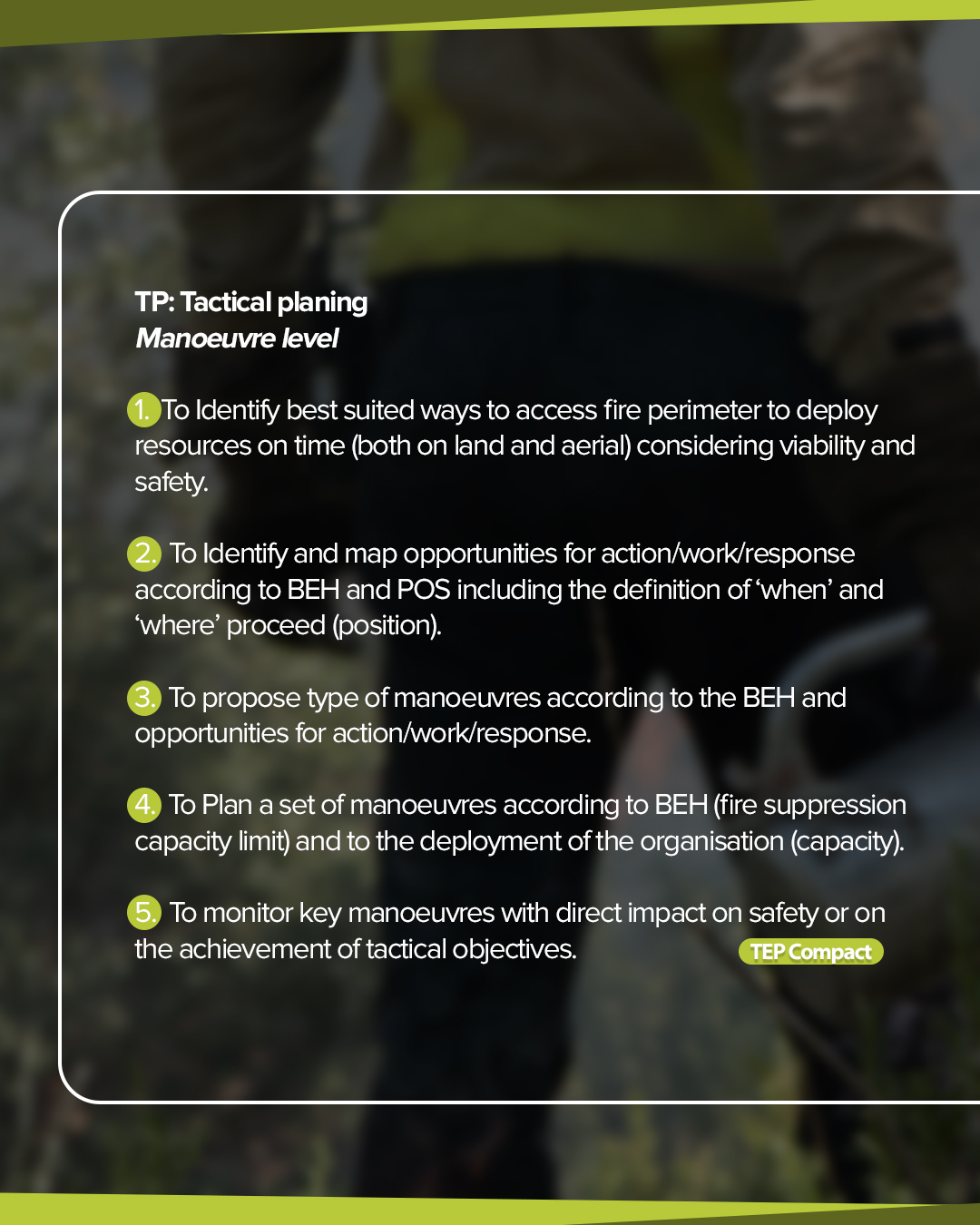
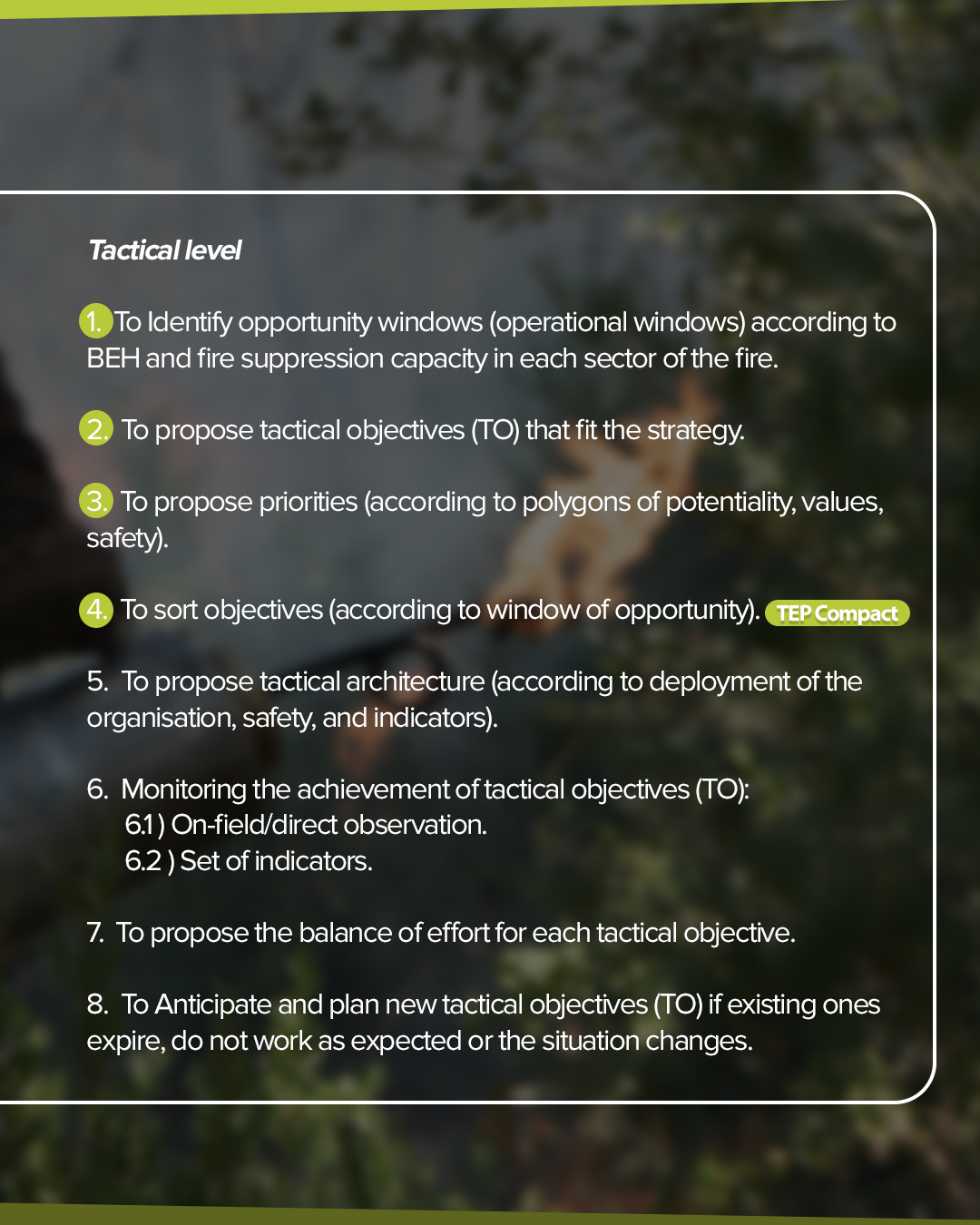
Fire spread Patterns (PAT)
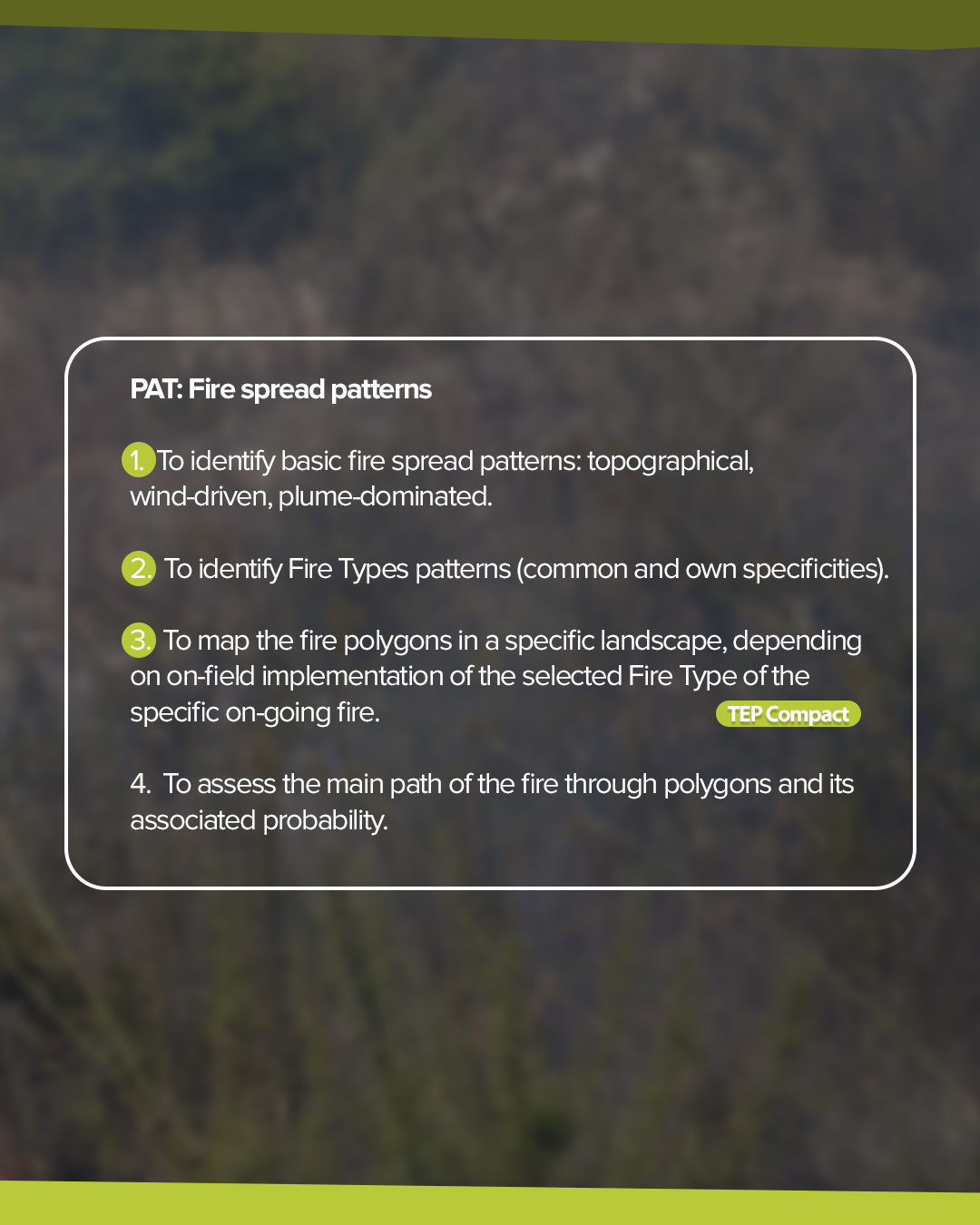
Fire Behaviour (BEH)
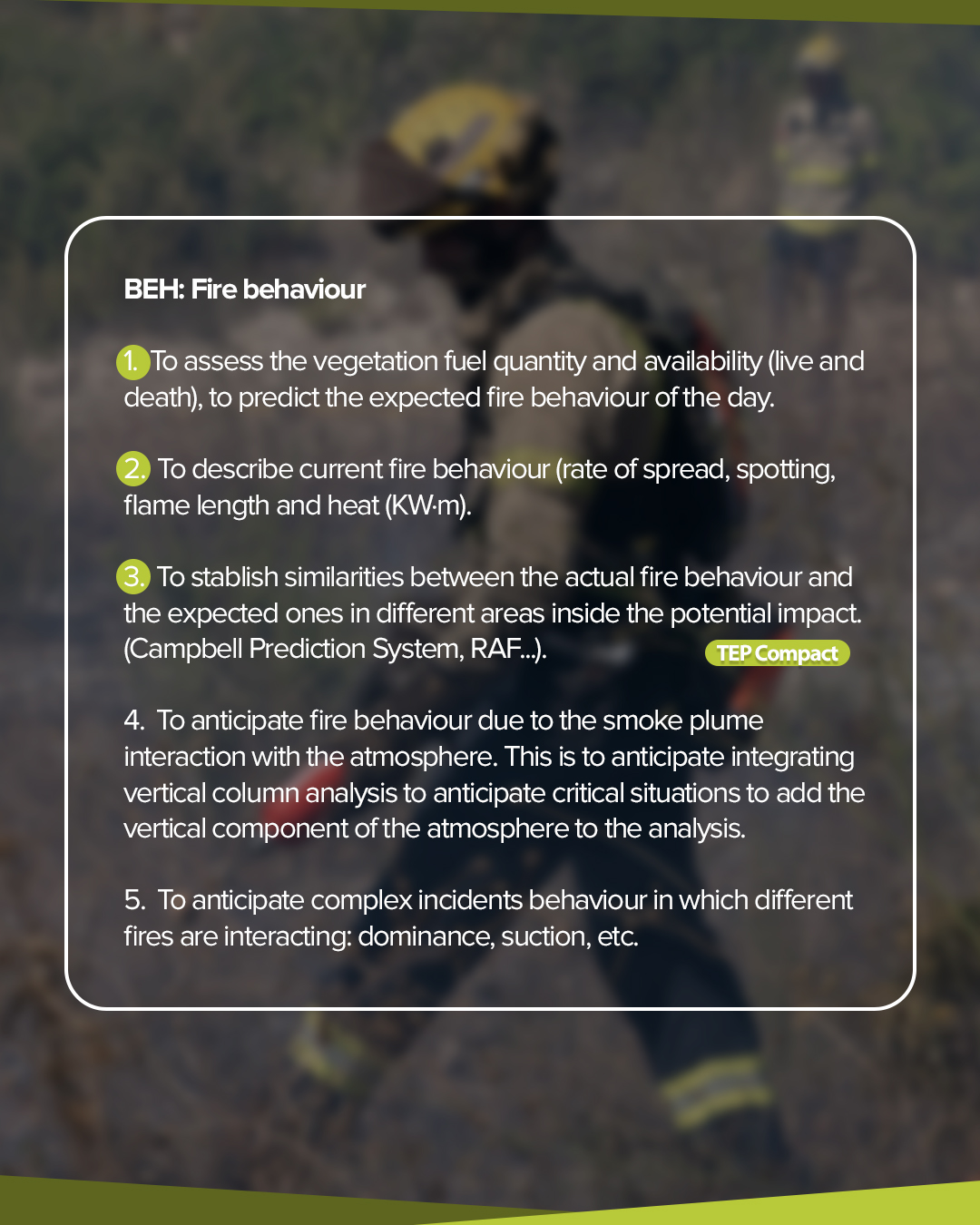
Estrategy and scenario awareness (SCE)
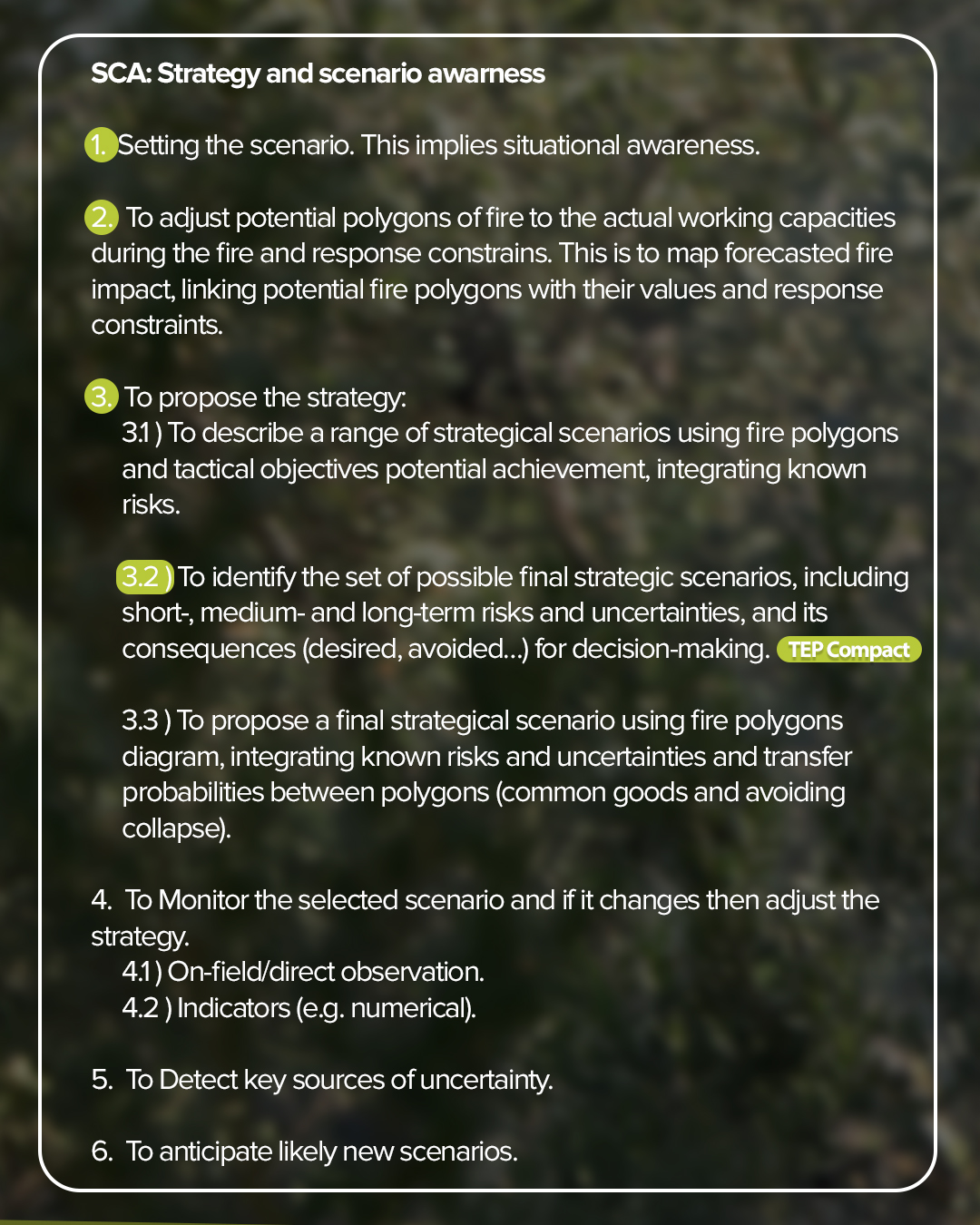
All the areas have different levels to adjust to the maximum each competence and ability with their service. Charting these areas of knowledge in levels allows us to see the capabilities of each organization, as well as areas for improvement. In this way it allows us to identify those that are more advanced in order to learn, share lessons and best practices.
Within the framework of the project, a workshop was held in Barcelona where our analyst and researcher Mercedes Bachfischer attended, presenting our training programs TEP Advance and TEP Compact. There, they analyzed both courses and charted them based on their 6 subject areas.
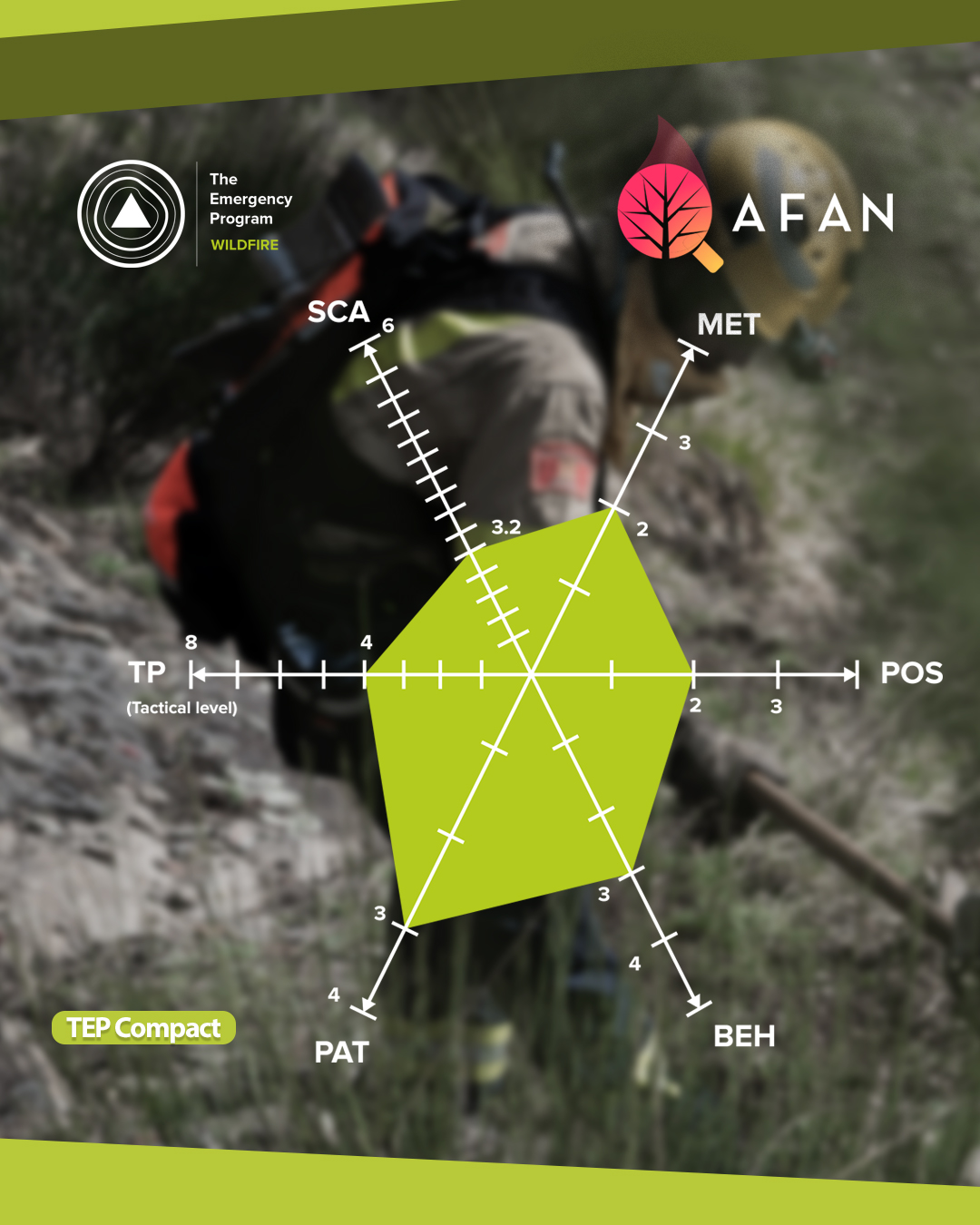
If you want to learn more about the contents of the guide, you can access from the following link.
https://fireanalysisnetwork.eu/2022/03/16/guidelines-of-fire-analyst-competencies-and-skills/
And to learn more about the project, you will find information on the following link.
https://fireanalysisnetwork.eu/




